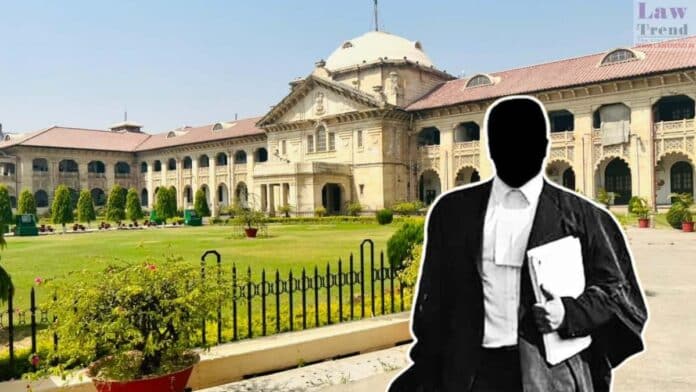The Allahabad High Court has granted a stay on coercive measures against Barsatu Ram Saroj, a lawyer from Jaunpur, who faces charges for allegedly posting indecent content about the Brahmin community on social media. The court, emphasizing the need for a deeper examination of the matter, scheduled the next hearing for February 7, 2025.
A two-judge bench comprising Justice Arvind Singh Sangwan and Justice Mohd. Azhar Husain Idrisi provided interim relief to Saroj, pausing any immediate legal actions stemming from the First Information Report (FIR) filed against him. The High Court observed that Saroj’s case requires further consideration, allowing him temporary protection until the next hearing.
Saroj is accused of violating Section 353(2) of the BNS Act and Section 67 of the Information Technology Act, 2000. These sections deal with spreading false information that could incite hostility or enmity among different groups, particularly when such content is shared via electronic means. The FIR, filed on September 25, 2024, claims that Saroj made derogatory comments about the Brahmin community, causing widespread offense.
The complaint was initiated by Praveen Tiwari, the District President of the Savarna Army. It argues that Saroj’s alleged remarks not only hurt community sentiments but also involved continuous use of abusive language, warranting strict legal action to prevent further misconduct.
Saroj’s counsel has challenged the FIR on several grounds. The defense contends that the FIR fails to specify the exact nature of the content posted by Saroj. Furthermore, the complaint also notes that Saroj was expelled from the local Bar Association, which his legal team argues is evidence of a malicious motive behind the FIR’s registration. They have filed a writ petition seeking the complete quashing of the FIR, claiming that the charges were lodged in bad faith.
The legal framework involves Section 353(2) of the BNS Act, which addresses the dissemination of false or inflammatory statements that could incite hostility among groups, and Section 67 of the Information Technology Act, 2000, which penalizes the electronic publication of obscene material.




